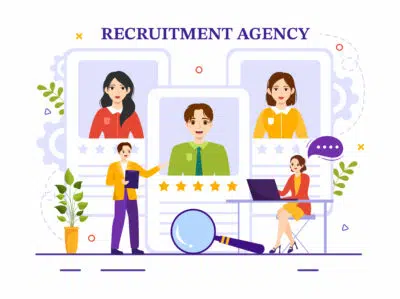Reviving your career: Effective reintegration after a gap

Work Culture, brand name or Pay Cheque: What should matter more to Early Career Professionals?
November 23, 2023
Mentorship and sponsorship: Keys to advancing careers for women returnees
November 28, 2023
The choice to take an extended leave of absence is difficult. Various factors prompt such an action. They include reaching crossroads in the career, assuming caregiving duties for elderly family members, the arrival of a new family member, a desire for self-reflection or a long-standing passion for travel, to name a few. Notably, this trend is becoming more common these days.
A recent survey indicated that 68% of workers have experienced employment gaps, with family responsibilities being a common reason.

The U.S. Bureau of Labor Statistics reports that the number of long-term unemployed individuals, those without a job for 27 weeks or more, reached 1.1 million in March 2023, constituting nearly 20% of all unemployed persons.
However, over time, individuals desire to reestablish a career. This is when the difficulty arises, as it can be quite challenging to reenter the workforce after an extended hiatus. 60% of individuals on a career break have faced challenges in finding new employment.
Even though platforms such as LinkedIn have implemented a feature for career breaks, the challenge endures. This challenge persists because of the stigma attached to career gaps in society and the cautious scrutiny employers give resume gaps. Nonetheless, some people contend that the landscape has evolved and that these gaps can be acknowledged without negatively affecting job prospects.
This definitely offers hope for individuals seeking to rejoin the workforce.

Nevertheless, we firmly believe that a comprehensive set of guidelines is essential to equip you for a successful return to the professional arena. Here they are:
1. Reassess skills
Have you hit the reset button in your professional life? Pause and take a deep breath. This is a time for self-reflection and gaining new perspectives on your professional journey. You could evaluate your skills, interests and educational qualifications. Consider what truly ignites your passion and enthusiasm. Ask fundamental questions about your career, such as what brings you the most fulfilment, what your core strengths are, what your long-term goals are, etc. This introspection can lead you to identify the roles that align with your aspirations.
Here, it's crucial to acknowledge that the journey of self-discovery will not always be straightforward. At times, you might feel lost or uncertain about the direction to take. In such moments, a career coach can be invaluable. His or her expertise and guidance can illuminate your path and help you make informed career choices.
2. Upskill and reskill
Technology has revolutionised numerous industries. To remain competitive and relevant in the market, businesses across the board are adapting to technologies such as artificial intelligence, data analytics and automation, among others. So, it is vital to stay on top of industry shifts.
While your transferable skills, including problem-solving, communication, project management, critical thinking, etc., remain valuable, they alone are insufficient to keep you at the forefront of your industry. They must be complemented either by learning new skills or by improving existing ones. Being stagnant in your skill set might render you outdated, which makes it difficult to compete in the employment market.
Additionally, staying informed about industry developments is equally essential. At the pace of technological change, industries are subject to frequent disruptions, and new trends and practices emerge regularly. Understanding these changes not only makes it easier to adapt but may also present chances for innovation and leadership in your field of expertise. It is necessary to have a lifelong learning attitude if you want to succeed in this constantly changing technological environment.
3. Revamp your resume and personal website
Embrace your inner marketer. You are the best advocate for yourself. No one knows your strengths, achievements and aspirations better than you do. You have unique qualities and experiences that can set you apart in the job market. It's your responsibility to highlight them. To do this, it's essential to invest time and effort in revamping your personal marketing tools. This includes your resume, personal website (if you have one) and social media profile.
These tools are often the first points of contact between you and potential employers or professional connections. So, they play a significant role in shaping your potential employer’s initial perception of you. Here are some suggestions for the revamp:
- Craft your professional narrative to showcase key accomplishments and experiences in a clear and concise manner.
- Review (it's not just about checking for errors or typos) until you genuinely feel satisfied. The indicator is a boost in confidence.
This action is essential for establishing your professional credibility and competence in others' eyes.
4. Grow your professional network
While on a career break, you might not be actively engaged in the day-to-day aspects of your industry, but this doesn't mean you should isolate yourself professionally. In fact, this is the ideal time to cultivate and expand your professional network. Networking is vital for many compelling reasons, such as maintaining industry relevance, getting potential leads for job openings, support and guidance, and, most importantly, for reentry assistance.

Cultivating quality connections is just as vital as expanding your network. It involves actively engaging with others, attending industry events, participating in online forums and maintaining relationships through periodic interactions. Besides, it's about offering help and support to your contacts in return.
5. Take one step at a time
While aiming for high-profile positions may be your ultimate goal, it's prudent to gradually reintegrate into the workforce. Consider freelancing and contract roles, which offer several advantages. For instance, if your career break was partly driven by a desire for a better work-life balance, these roles empower you with greater control over that balance.
Furthermore, freelancing and contract work can function as a valuable "trial period" for both you and potential employers. In essence, they provide a solid transitional step back into your job, allowing you to adjust to market shifts and rehabilitate your self-esteem and skill set. They also offer a more flexible and smoother pathway to achieving your long-term career objectives.
In addition, explore internships or return-to-work programmes that provide structured learning environments for acquiring new skills or refreshing existing ones. Many of these programmes also include mentorship or coaching components, offering guidance, support and insights into company culture and industry dynamics.
These programmes prove particularly beneficial if you're uncertain about your career direction after a career break, facilitating a smooth transition back into the workplace.
6. Work on your elevator pitch
You typically have a 30-second to 2-minute window to make an impression on the interviewer. Consider the following advice to make your elevator pitch seem confident and natural:
- Start with a captivating introduction that grabs attention.
- Clearly and succinctly describe your profession using straightforward language.
- Customise your pitch to suit your audience.
- Allow your enthusiasm to shine through in your delivery.
- Maintain eye contact and exhibit open and confident body language.
By practising your elevator pitch while incorporating these recommendations, you can avoid coming across as rehearsed or artificial.
7. Don’t be apologetic
When preparing for interviews, it's crucial to address the career gap on your resume candidly, without apologising for it. Emphasise the positive aspects of this period, such as acquiring new skills, experiences, self-improvement, volunteer work or gaining a broader perspective through travel. Highlight these experiences without hesitation.
Additionally, make a connection between your career gap and the specific role that you're pursuing. Explain how the skills and experiences you gained during this time directly benefit the organisation. Showcase how you can contribute positively.
Confidence is essential when discussing your career gap. Demonstrating comfort and assurance while addressing the gap is more likely to elicit a positive response from the interviewer. Express your readiness to re-enter the workforce and enthusiasm for the opportunity.
If feasible, offer references or recommendations from activities or work you undertook during your career gap to support your claims of personal and professional growth.
In summary, while transparency regarding a career gap is vital in interviews, it's equally essential not to dwell on it or offer apologies. Instead, concentrate on how this gap has positively influenced your skills and perspective. Illustrate how these qualities can be valuable assets to the organisation you are interviewing for.
To a new beginning
Surmounting career gaps and smoothly reintegrating into the workforce is both attainable and profoundly transformative. The strategies we've discussed can guide you through this transition with poise and assurance. As you embark on your path to conquering career gaps, it's essential to recognise that your distinct experiences have moulded you into a more tenacious, adaptable and holistic professional.
Our guidelines help you bridge the divide and enable you to stride resolutely into the next chapter of your career. They equip you with fresh perspectives and insights into your prospective contributions to the workplace.
Embrace your journey and use the pause in your work as evidence of your personal development and steadfast determination.
References: linkedin.com,peoplematters.in,betterup.com,linkedin.com,indeed.com,realsimple.com,indeed.com,forbes.com,finance.yahoo.com


